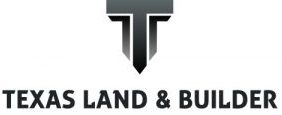When searching for a new home, one of the biggest decisions you’ll face is whether to build a custom home or purchase a production home. Both options offer unique advantages, and understanding the differences can help you make an informed choice. In this article, we’ll explore the key factors to consider when deciding between building a custom home and buying a production home, including costs, timelines, functionality, unforeseen expenses, and resale value.
Cost Differences: Custom vs. Production
Custom Homes:
Building a custom home typically comes with a higher price tag. You have complete control over the design, materials, and finishes, which allows you to tailor every aspect of the home to your liking. This flexibility often leads to higher costs, especially if you choose premium materials or unique architectural elements. Additionally, land costs, site preparation, and personalized features can add to the overall expense. On average, custom homes are more expensive per square foot than production homes.
Production Homes:
Production homes, on the other hand, are generally more affordable. Builders who specialize in production homes offer limited floor plans and pre-selected options, allowing for more cost-effective construction. These homes are built in larger quantities with streamlined processes, which helps lower labor and material costs. While you may have fewer customization options, the lower price point makes production homes a more budget-friendly choice.
Timelines: How Long Will It Take?
Custom Homes:
Building a custom home typically takes longer due to the level of customization and complexity involved. The process includes hiring an architect, designing the floor plan, selecting materials, and building the home from scratch. Delays in sourcing materials or obtaining permits can extend the timeline. It’s not uncommon for custom home projects to take 10 to 18 months, depending on the size and complexity of the build.
Production Homes:
Production homes are built faster due to their standardized designs and streamlined construction processes. Many production builders have homes pre-permitted and ready to start construction as soon as a buyer signs a contract. Depending on the community and floor plan, you could move into a production home in as little as 3 to 4 months.
Functionality and Personalization
Custom Homes:
The biggest advantage of building a custom home is the ability to create a space that perfectly suits your lifestyle and needs. You can choose everything, from the layout to the materials, and design the home with your preferences in mind. Whether it’s a gourmet kitchen, extra storage space, or energy-efficient features, a custom home is built around how you want to live.
Production Homes:
While production homes offer limited floor plan options, many builders do allow for minor customizations, such as choosing between different interior finishes, flooring options, and kitchen layouts. However, the overall design and layout will be more standardized, and there may be fewer opportunities to add personalized touches compared to a custom home.
Unforeseen Costs
Custom Homes:
One potential downside of building a custom home is the risk of unforeseen costs. Custom projects can encounter unexpected expenses related to site preparation, material price fluctuations, or design changes. These surprises can lead to budget overruns if not carefully managed. It’s essential to work with a builder who provides transparent pricing and a clear plan to handle any potential cost increases.
Production Homes:
With production homes, costs are typically more predictable. Because the builder is constructing multiple homes with standardized materials and processes, the likelihood of unforeseen expenses is lower. The price you see when you sign the contract is often closer to the final cost, reducing the chance of unexpected financial surprises.
Resale Value
Custom Homes:
Custom homes can hold their value well, especially if they are built with high-quality materials and designed with timeless appeal. However, because a custom home is tailored to your specific tastes, it may not appeal to a broad range of buyers when it comes time to sell. Unique features or unconventional layouts could limit your resale market. That said, if you’ve invested in energy-efficient upgrades, modern designs, or a great location, these can boost your resale value.
Production Homes:
Production homes tend to have more predictable resale value, as they are built using popular floor plans and features that appeal to a wide range of buyers. Their standardized designs often align with current market trends, making them easier to sell. However, production homes may not appreciate as quickly as custom homes, depending on the quality of materials and the competitiveness of the housing market.
Conclusion: Which is Right for You?
Choosing between building a custom home and buying a production home comes down to your priorities, budget, and timeline. If you’re looking for complete control over your home’s design, functionality, and personalization, and you have the time and budget for it, building a custom home is an excellent option that will deliver a truly unique living space. On the other hand, if you’re seeking a more affordable, faster-to-build option with fewer decisions and predictable costs, a production home may be the better fit.
Both choices have their benefits, and understanding the trade-offs can help you make the best decision for your lifestyle and future.
